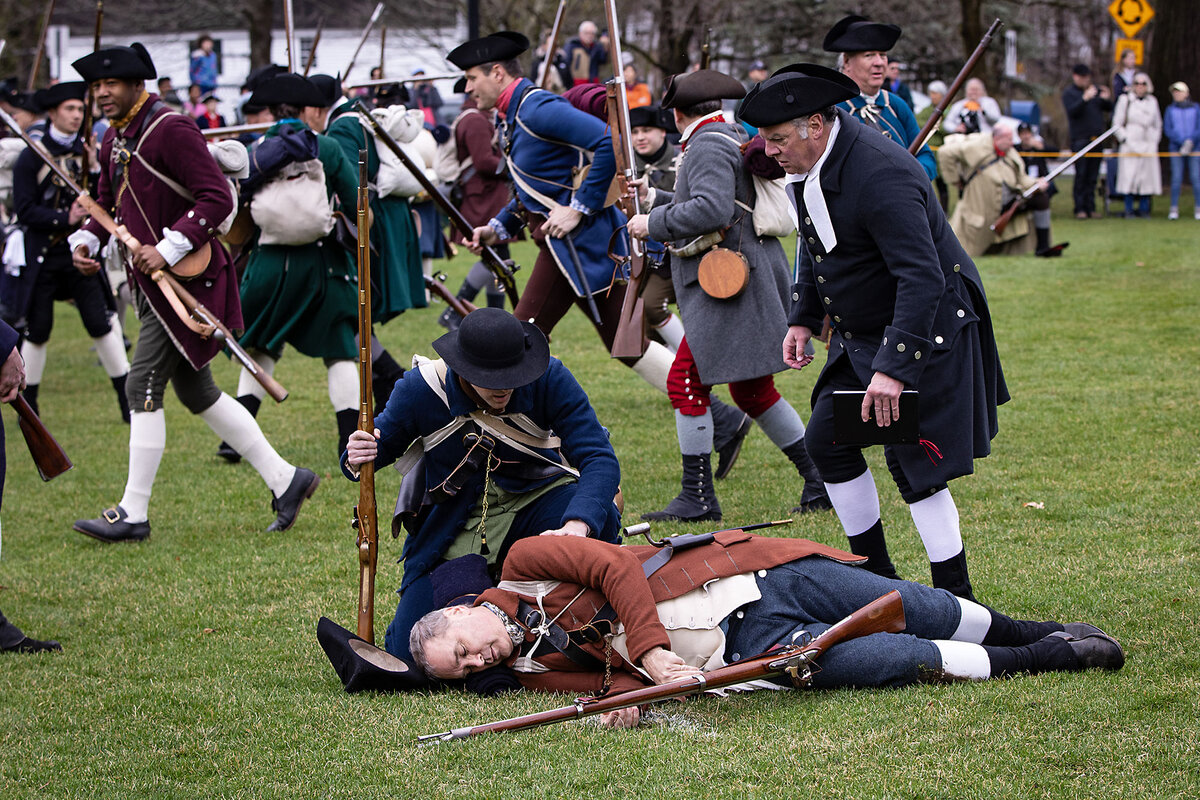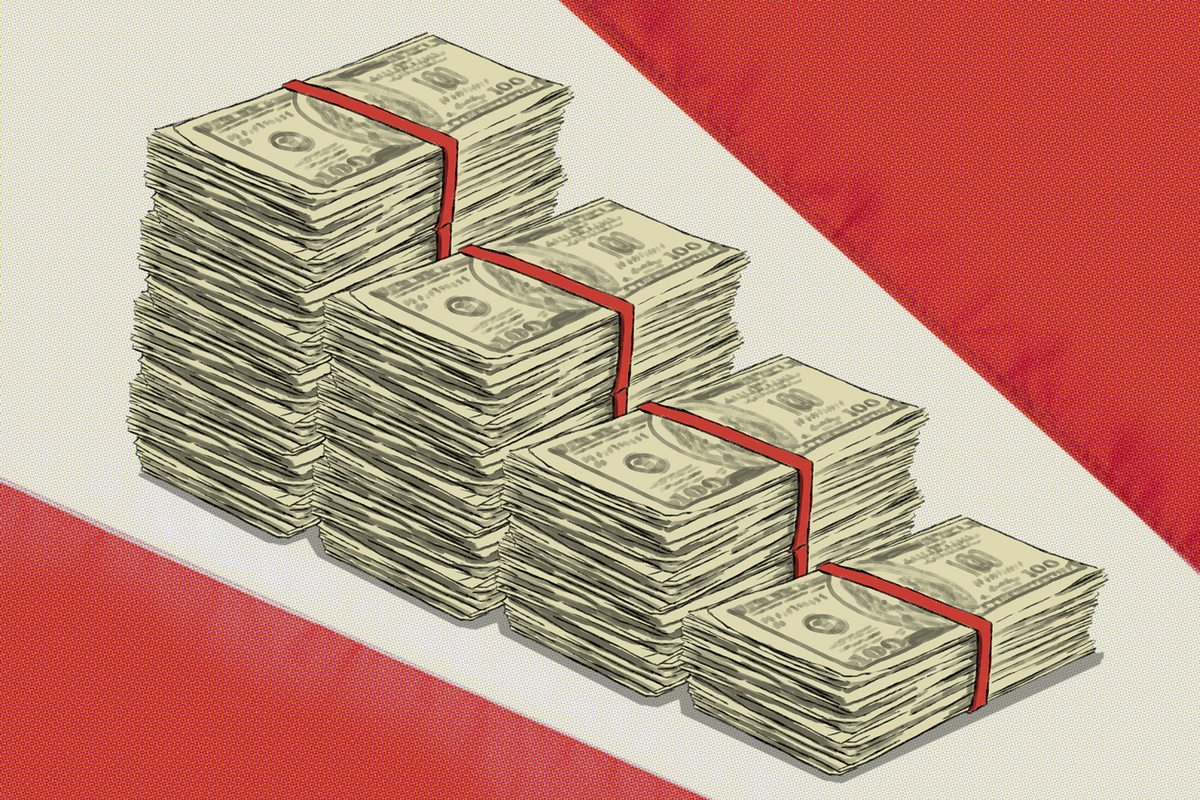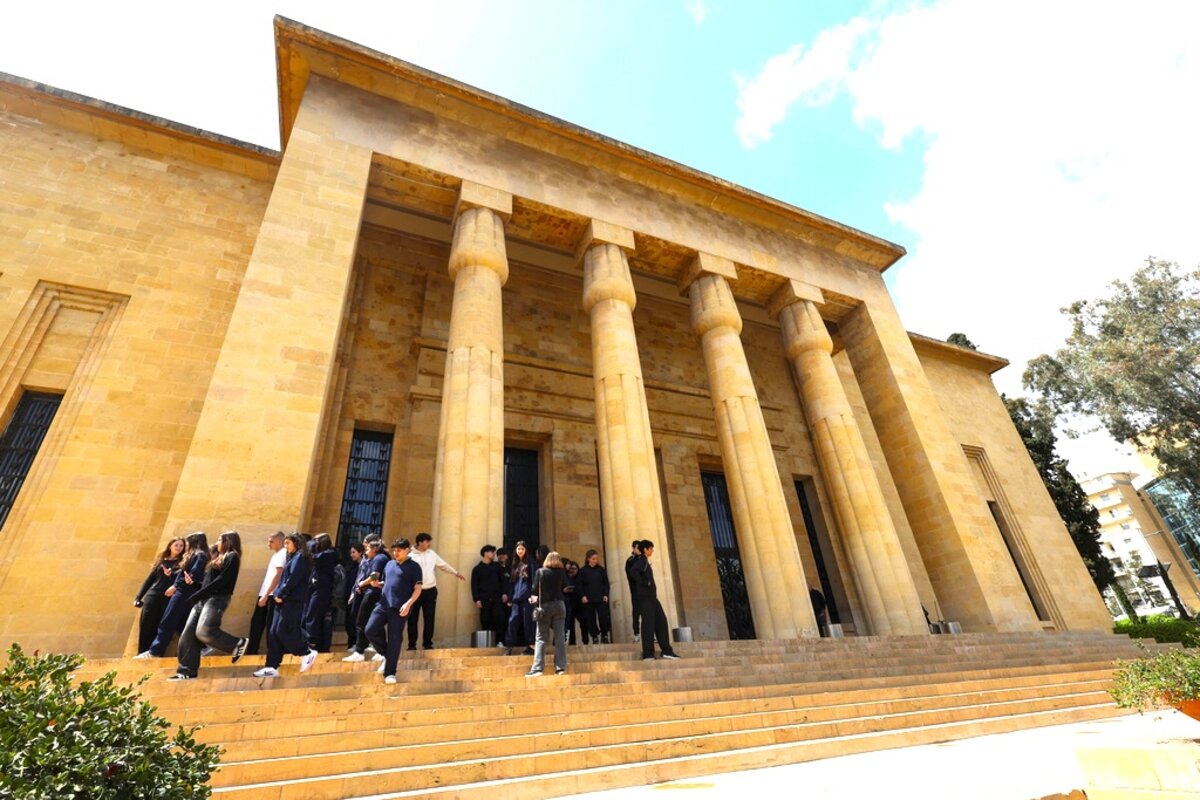-
Clashes over deportees: Maryland Sen. Chris Van Hollen arrived in El Salvador to push for the release of Kilmar Abrego Garcia, sent there by the U.S. in March despite a court order preventing his deportation. The Supreme Court has also called on the administration to facilitate his return. A federal judge in a separate case said he found probable cause to hold the administration in criminal contempt of court for violating his orders to turn around planes carrying deportees to El Salvador. – The Associated Press
- Related Monitor story: We looked at how a deportation case is turning into a tussle over presidential authority.
- Golden State vs. tariffs: California Gov. Gavin Newsom is suing the Trump administration over tariffs. California is the first U.S. state to challenge the president’s authority to enact them without congressional approval. Donald Trump claims he can do that under the International Economic Emergency Powers Act. The state argues he’s violating the Constitution, which gives Congress the authority to levy tariffs. California, the world’s fifth-largest economy, makes up 14% of the national gross domestic product. Studies show the state will lose billions of dollars if the tariffs continue. – Staff
- United Kingdom on “womanhood”: The U.K. Supreme Court ruled Wednesday that the U.K. Equality Act defines a woman as someone born biologically female. Five judges ruled unanimously that “the terms ‘woman’ and ‘sex’ in the Equality Act refer to a biological woman.” The ruling means that a transgender person with a certificate that recognizes them as female should not be considered a woman for equality purposes. – AP
- Trump sues Maine: Also Wednesday, the Trump administration sued Maine’s education department for not complying with its push to ban transgender athletes in girls’ and women’s sports. That escalates a dispute over whether the state is abiding by the federal Title IX anti-discrimination law that bars discrimination in education based on sex. It follows weeks of feuding between the administration and Democratic Gov. Janet Mills, and threats to federal funding. – AP
- The president and the press: An appeals court is set to hold a hearing Thursday over whether the White House can limit Associated Press access. At issue is how much control the president has over the media that cover him. After the AP refused to fully switch to Mr. Trump’s “Gulf of America” nomenclature earlier this year, it was banned from the small pool of journalists who travel with the president and attend White House events. A federal judge said last week that the ban amounted to a First Amendment violation. – Staff
-
Book brigade: Residents of a Michigan community formed a human chain and helped a local bookshop move each of its 9,100 books to a new storefront about a block away. The “book brigade” included about 300 people. “As people passed the books along, they said ‘I have not read this’ and ‘that’s a good one,’” said Michelle Tuplin, the store’s owner. The work took under two hours, she said. – AP
- Related Monitor story: Last summer, we interviewed Evan Friss, the author of “The Bookshop: A History of the American Bookstore,” on the vital role such shops play.

Why is Christian Science in our name?
Our name is about honesty. The Monitor is owned by The Christian Science Church, and we’ve always been transparent about that.
The Church publishes the Monitor because it sees good journalism as vital to progress in the world. Since 1908, we’ve aimed “to injure no man, but to bless all mankind,” as our founder, Mary Baker Eddy, put it.
Here, you’ll find award-winning journalism not driven by commercial influences – a news organization that takes seriously its mission to uplift the world by seeking solutions and finding reasons for credible hope.
Explore values journalism About usMonitor Daily Podcast
- Follow us:
- Apple Podcasts
- Spotify
- RSS Feed
- Download
 Kurt Shillinger
Kurt Shillinger
“Not only was the United States born of revolution,” historian Walter McDougall once noted “it is one.” Saturday marks the 250th anniversary of the first shots fired in a revolution felt round the world. It resulted in a nation that reached the moon with a slide rule and gave rise to a global religious movement founded by a woman. It is a yet-young country, still restlessly striving to perfect its founding ideal that all individuals are created equal.
Already a subscriber? Log in
Help fund Monitor journalism for $11/ month
Monitor journalism changes lives because we open that too-small box that most people think they live in. We believe news can and should expand a sense of identity and possibility beyond narrow conventional expectations.
Our work isn't possible without your support.
News briefs
Today’s stories
And why we wrote them
( 10 min. read )
The reenactment of historic battles requires a special brand of sacrifice. Those drawn into the fraternity of tricornes and coats of Colonial brocade may spare no effort for authenticity – be it the stain of their buttons or the gristle in their ham. But for the men and women preparing to relive the opening choreography of the American Revolution this weekend, bringing history to life has a deeper object: to honor the stories of real people and the price they paid for freedom.
( 4 min. read )
Amid the recent sharp fluctuations in global bourses, a new trend emerged: Investors dumped U.S. government bonds. The sell-off reflects a growing crisis of confidence in the dollar. Since the end of World War II, the greenback has been a symbol of trust and stability rooted in the rule of law. Its faltering reputation may be the cost of growing uncertainty in Washington’s global leadership.
( 7 min. read )
The Trump administration has made operations at the southern border and deterrence of China two of its top defense priorities. To help pay for those efforts, the U.S. Department of Defense has ordered each branch of the armed services to cut spending by 8% over each of the next five years. Scrapping old weapons systems, downsizing forces, and updating software may help reach that goal.
( 5 min. read )
Earlier this year, South Africa passed a new law allowing the government to seize farmland without compensation. President Donald Trump decried the law and has offered a special path to white farmers seeking to emigrate to the United States. But in South Africa, the commercial farming sector sees a longer, more complex process of righting an inequality rooted in apartheid, the country’s former system of racial oppression.
Essay
( 4 min. read )
An English laurel in the right frame of mind can grow about 2 feet per year. Hedgehogs can get through them, but cows can’t. That’s why they make such fine boundaries along country lanes. When a writer bought a dilapidated house in a dilapidated neighborhood outside Portland, Oregon, years ago, a green laurel fortress shut her and her flowering perennials off from the outside world. But when her husband uprooted the hedge one day, she discovered a vibrant neighborhood of baby strollers and artists and neighbors stopping by for a cup of sugar.
The Monitor's View
( 2 min. read )
Shattered by a war with Israel last year and a six-year depression, Lebanon recently opened a new wing in the National Museum of Beirut. Yes, amid both war and economic destruction, the tiny Mediterranean country decided that showcasing Lebanese modern art was one way to create a common identity in a religiously diverse and torn nation.
The new exhibit serves as “a reminder that there is something healing about remembering what is still good, what we still have,” said Juliana Khalaf, co-director of the Beirut Museum of Art, which collected the works for the new space.
Lebanon is now in the midst of an urgent identity-building process ever since a Nov. 27 ceasefire between Israel and the Iran-backed militia group Hezbollah that dominates the minority Shiites. A new reformist government is eager to bring the group’s fighters and weapons into the national army in order to gain foreign assistance for badly needed reconstruction.
President Joseph Aoun praises Hezbollah for cooperating so far with the Lebanese army. The group, whose top ranks were killed by Israel, has handed over more than half of its positions to the army. One reason: It has lost much of its support from Iran as well as help from Syria after the December collapse of a friendly regime there.
In a message to Hezbollah last month, the head of Lebanon’s Change Movement party, Elie Mahfoud, stated, “Return to your true Lebanese identity and take off the Iranian cloak.”
Another leading politician, Fouad Makhzoumi, wrote on the platform X, “Let us confront wars and destruction with Lebanon’s most important characteristic: a culture of life.”
Lebanon, where top government positions are divvied up by sect, needs a new social contract, wrote Anthony Samrani, co-editor in chief of L’Orient Today this month. “We need to invent a new model of citizenship, one that goes beyond community allegiances without denying them, to enable us to manage more maturely our delicate and natural relationship with otherness.”
A big part of the country’s identity, he added, is plurality and an aspiration to freedom. “Ultimately, Lebanon is an idea before it is a country. And true ‘Lebanon-ization’ is not a disease but a cure.”
In one way, the new art hall at the national museum is a cure. It serves as a “sanctuary,” Ms. Khalaf told the publication Democracy in Exile, “where shared heritage and collective imagination could defy the silencing grip of violence.”
A Christian Science Perspective
Each weekday, the Monitor includes one clearly labeled religious article offering spiritual insight on contemporary issues, including the news. The publication – in its various forms – is produced for anyone who cares about the progress of the human endeavor around the world and seeks news reported with compassion, intelligence, and an essentially constructive lens. For many, that caring has religious roots. For many, it does not. The Monitor has always embraced both audiences. The Monitor is owned by a church – The First Church of Christ, Scientist, in Boston – whose founder was concerned with both the state of the world and the quality of available news.
( 4 min. read )
Christ empowers us to rise out of a sense of life in matter into the understanding of God as Life, which brings healing and joy.
Viewfinder










